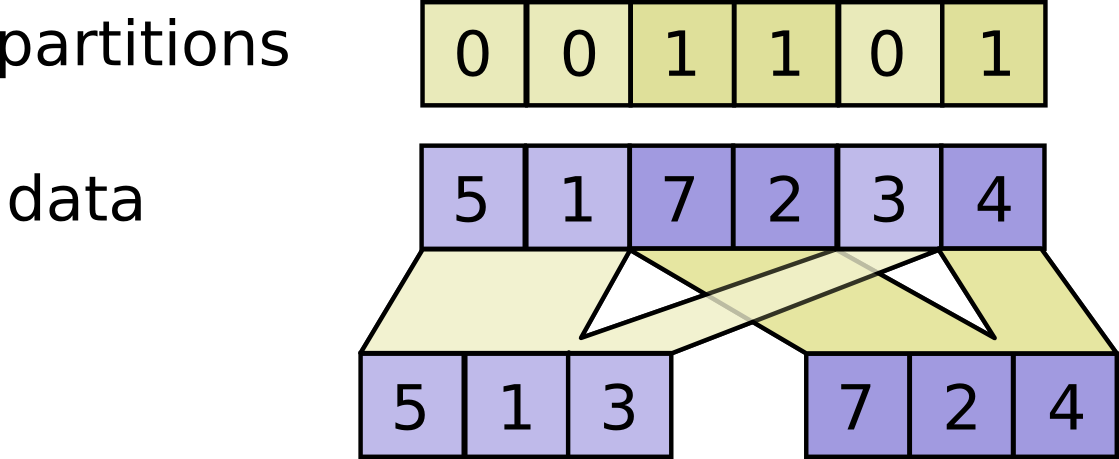Partitions `data` into `num_partitions` tensors using indices from `partitions`.
For each index tuple `js` of size `partitions.ndim`, the slice `data[js, ...]` becomes part of `outputs[partitions[js]]`. The slices with `partitions[js] = i` are placed in `outputs[i]` in lexicographic order of `js`, and the first dimension of `outputs[i]` is the number of entries in `partitions` equal to `i`. In detail,
outputs[i].shape = [sum(partitions == i)] + data.shape[partitions.ndim:]
outputs[i] = pack([data[js, ...] for js if partitions[js] == i])
For example:
# Scalar partitions.
partitions = 1
num_partitions = 2
data = [10, 20]
outputs[0] = [] # Empty with shape [0, 2]
outputs[1] = [[10, 20]]
# Vector partitions.
partitions = [0, 0, 1, 1, 0]
num_partitions = 2
data = [10, 20, 30, 40, 50]
outputs[0] = [10, 20, 50]
outputs[1] = [30, 40]

Constants
| String | OP_NAME | The name of this op, as known by TensorFlow core engine |
Public Methods
| static <T extends TType> DynamicPartition<T> | |
| Iterator<Operand<T>> |
iterator()
|
| List<Output<T>> |
outputs()
|
Inherited Methods
Constants
public static final String OP_NAME
The name of this op, as known by TensorFlow core engine
Public Methods
public static DynamicPartition<T> create (Scope scope, Operand<T> data, Operand<TInt32> partitions, Long numPartitions)
Factory method to create a class wrapping a new DynamicPartition operation.
Parameters
| scope | current scope |
|---|---|
| partitions | Any shape. Indices in the range `[0, num_partitions)`. |
| numPartitions | The number of partitions to output. |
Returns
- a new instance of DynamicPartition
